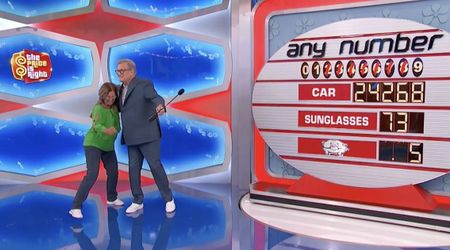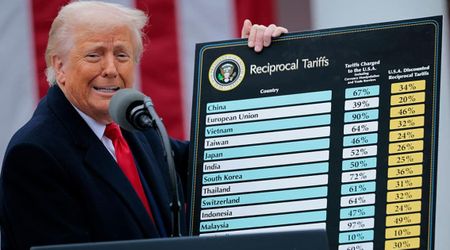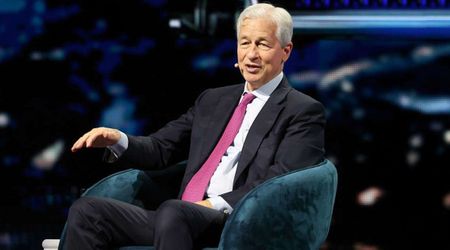The amount Americans budgeted for food in 1900s is truly mindblowing — it's 4 times more than now

As Americans struggle to make ends meet amid inflation that is at an all-time high, they may be shocked to learn how things were about 100 years ago. According to historic data, Americans in 2024 in fact have more disposable income in their hands compared to what their grandfathers or great-grandfathers had in the early 1900s. While inflation peaked at 7% in 2022, the highest since 1980, as per Investopedia, it turns out that they were still better off than the older generation.

Data says life wasn't much better 100 years ago
According to the latest data from the Agriculture Department, US consumers spent about 11.2% of their disposable income on average on food. This was slightly below the 11.4% that Americans were spending during the Gulf War 30 years ago, The New York Post reported, citing data from the USDA.
Americans have not spent this much of their incomes on food since the Gulf War: feds https://t.co/4oF3d4j5Fp pic.twitter.com/EVUWka8DRk
— New York Post (@nypost) February 21, 2024
While this may seem that doomsday is upon consumers, things were shockingly worse a century ago. According to the report, '100 Years of U.S. Consumer Spending' from the Department of Labor, food costs accounted for a whopping 42.5% of the total expenditure of Americans in 1901. This is nearly four times the current share of food in an American household's budget.

Moving 30 years further, things still don't look great. As per the Department of Labor report in 1930, an average American household was still spending 33.6% of its budget on food, nearly three times more than in 2022, when inflation was at a record high.
While it may seem that the economy and prices aren't that bad after all, it is important to note that this was only the particular case of food prices. As the share of expenditure on food drastically reduced over time, the same on housing and transportation went up significantly.
It's All Relative
As per an analysis from The Atlantic, in the year 1900, only a quarter of American households had running water, and even fewer owned the homes they lived in. Only one-twelfth of the households had gas or electric lights, and only one in 90 owned a car, while nobody had a television.

Thus, looking at the broader picture, it was natural for people to spend a larger share of their budget on food only. The modern-day equivalent of that today is housing and transportation on which Americans are spending over half of their disposable income, on average.
On top of that food now is more abundant than ever. According to an analysis published by Frontiers in Nutrition in 2022, the estimated available calories grew by 18% from 1909 to 2010. At the same time, protein availability increased by a whopping 173%.

Furthermore, in the year 1900, the Bureau of Labor Statistics considered only housing, food, and apparel as necessities. But today healthcare, car, higher education, insurance and more have been added to the list. It can't be denied that income levels have also risen astronomically when compared to the early 1900s but the expectations and other costs have also gone up.
Americans now spend close to $13,000 on average on healthcare each year, as per Investopedia. Insurance premiums, high deductibles, and out-of-pocket keep rising in the country every year.
Car insurance rates could jump 50% in these 3 states this year: studyhttps://t.co/XJ6NDieSzo
— CBS 4 News (@cbs4rgv) August 20, 2024
According to a Bankrate report, the average premiums for full coverage auto insurance increased by 26% from 2023 to $2,543 in 2024, a cost that virtually didn't exist back in 1900. Thus, the squeeze that Americans are feeling today is real despite the fact that they are spending less on food, compared to 1900.






















